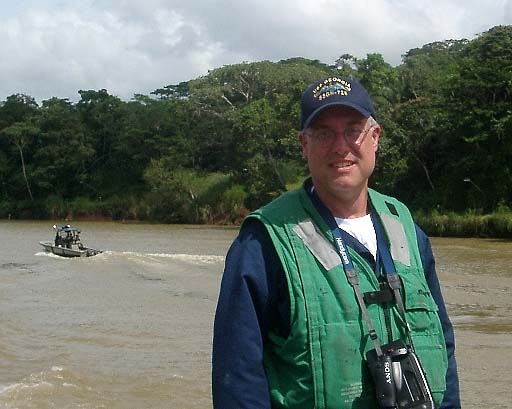
If you believe this, and many apparently do, I have a bridge to sell you.
NKorea Calls for End of Hostile Relations With US
North Korea called for an end of hostile relations with the United States in a New Year's message Friday and said it was committed to making the Korean peninsula nuclear-free through negotiations.It seems that those who should know better do not recognize the Dear Monster Kim's dangerous cycle (more on that below)
Communist North Korea has long demanded that Washington end hostility toward its government, and said it developed nuclear weapons to deter a U.S. attack. Washington has repeatedly said it has no intention of invading the country.
The New Year statement brightened prospects for North Korea to rejoin stalled international talks on ending its nuclear weapons programs in exchange for aid and other concessions. Washington has sought to coax it to return to the talks, which also include South Korea, China, Russia and Japan.
Cheong Seong-chang, a senior analyst at the private Sejong Institute security think tank, said North Korea is likely to maintain its conciliatory approach toward the U.S.Will our Department of State fall for this? Maybe not (we hope)
"The North extended an olive branch to the U.S.," Cheong said, adding that he expects the two sides will agree to set up a liaison office as a symbolic move to end their hostilities.
Kim Yong-hyun, a North Korea expert at Seoul's Dongguk University, also said prospects are not bad for relations between North Korea and the U.S., noting the absence of the usual diatribes against the U.S. in the New Year message.
The statement said North Korea remains committed to improving relations with South Korea, and urged the South to refrain from actions that might aggravate tensions.
The United States responded by suggesting that North Korea return to "six-party talks" -- negotiations over its nuclear program involving the U.S., South Korea, China, Russia and Japan. "Actions speak louder than words," a State Department official said.We have two enemy countries playing the US and the UN for fools and succeeding;
Dangerous Cycle
Both North Korea and Iran’s nuclear diplomacy are testaments to how Western diplomats reward intransigence. Take North Korea: During a June 30, 2006, American Enterprise Institute panel, Danielle Pletka pointed out the pattern: On August 31, 1998, Pyongyang fired the Taepodong-1 missile over Japan. Three months later, U.S. officials held the first round of high-level talks in Pyongyang. North Korean leader Kim Jong Il demanded to be rewarded for ceasing his provocations. He was. The following year, U.S. Defense Secretary William Perry visited North Korea to offer normalized relations and a lifting of economic sanctions if Pyongyang froze and eventually dismantled its long-range-missile program and stopped its missile exports. On September 17, 1999, President Clinton eased sanctions against the north. Two months later, a U.S.-led consortium signed a $4.6 billion contract for two Western light-water nuclear reactors for the Stalinist police state. The Clinton administration began shipping food aid to the famine-ridden north, which Pyongyang used to grease its war machine even as ordinary citizens starved.How long before Kim wants more and initiates another crisis?
Having been given everything it had asked for, Kim Jong Il decided he wanted more. On July 1, 2000, he threatened to restart the nuclear program if Washington did not compensate it for electricity lost by delays in plant construction. Pyongyang then threatened to reverse course on its missile test moratorium. It did. On July 2001, it conducted a Taepodong-1 engine test.
All the while, Kim Jong Il cheated. The Bush administration did not initially agree to accept North Korean smoke-and-mirrors. In October 2002, the Bush administration announced that Pyongyang had operated a covert nuclear-weapons program in violation of its 1994 agreement. Diplomats may celebrate treaties. Many who helped negotiate the 1994 Agreed Framework have meritorious service certificates framed on their wall. But agreements are meaningless if not adhered to, and seldom do autocracies stick to agreements if they gain more through noncompliance.






1 comment:
Indeed agreements are meaningless if not adhered too!
Your post is intriguing and engrossing. Keep sharing!!
This is Nancy from Israeli Uncensored News
Post a Comment